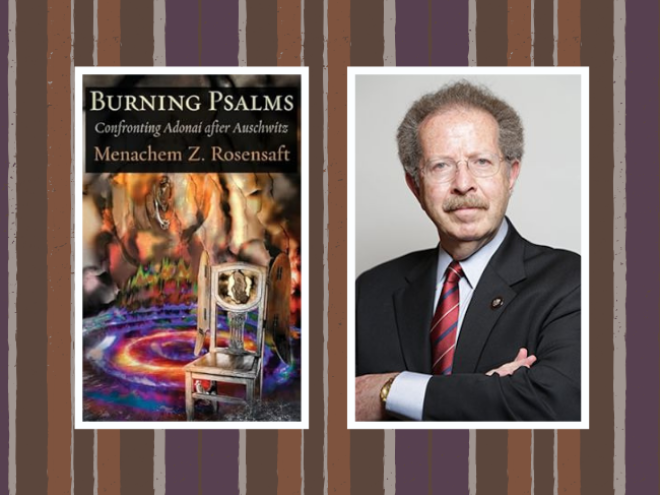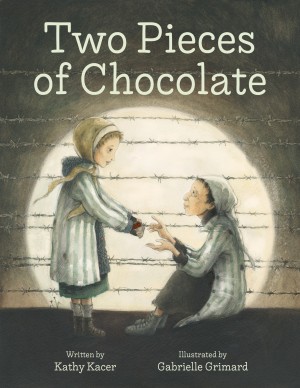“How can we let Adonai in when unresolved anger prevents us from letting Adonai in?”
This question, posed by Menachem Z. Rosensaft in the introduction to his searing collection Burning Psalms: Confronting Adonai after Auschwitz, is, for many Jews, the spiritual challenge of their lifetimes.
The challenge certainly weighs heavy for Rosensaft, the child of survivors of Auschwitz and Bergen-Belsen, whose five-and-a-half-year-old brother was murdered in a Birkenau gas chamber. While many find comfort in traditional psalms, prayers that repeatedly praise God’s compassion and extol His promise to protect the righteous and punish evil, the liturgy does not tell the complete story. For those who perished in the Holocaust, Rosensaft writes, “no such divine assistance was forthcoming,” and in Burning Psalms, he calls God to account for His absence at a time His children needed Him most.
Rosensaft responds to each of the traditional 150 psalms with a poem of his own. His burning psalms are certainly powerful as standalones, but when considered alongside the traditional psalms that informed them, they invite the reader to eavesdrop on an intimate conversation between the two texts. Rosensaft lifts images from the original liturgy and examines them from the lens and experience of the Holocaust’s victims — and of a poet who hears the victims’ ghosts. It is not Rosensaft who turns the images on their heads. It was God. Rosensaft is only documenting — in strong, stunning language that lands on a reader’s heart, gut, soul.
Even those who have not encountered many original psalms will be familiar with number 23 and its famous beginning: “The Lord is my shepherd; I shall not want.” While the canonical text speaks of a God who “anoints my head with oil” and who is present and comforting “even as I walk in the valley of the shadow of death,” Rosensaft’s burning response replaces pastoral images with the bleak reality of the Holocaust: “no shepherd / only foes … only bitter soup / moldy bread … their heads anointed / by blows /shadows walking / through the valley of death …”
Rosensaft is meticulous. Nothing in the original text slips past his attentive eye — or escapes his countering, questioning pen. “Burning Psalms 59,” for example, directly refutes claims made in the originals and follows the corrective with perhaps the most critical question of all: “You did not strengthen us against them / You were not my fortress / in my hour of despair … how can we sing of Your lovingkindness / how can we praise Your might?” Rosensaft does not dispute God’s existence — or His power. On the contrary, much of the strength in these burning responses rests in the belief that God could have stopped the murders, should have “split the seas,” as He did for His children leaving Egypt. Instead, these poems assert, He hid His face.
The collection reads like one continuous, desperate cry. It can also feel relentless. That may be the point. The numbers, the devastation, the deaths are beyond human comprehension, more than we can carry. Still, we must try. “Burning Psalm 150” ends the collection with the single-word line “why?” After October 7 (the events of which Rosensaft addresses in “Simchat Torah Requiem,” appearing at the end of the book), that haunting “why?” — and these poems — burn more deeply. While there is no answer, it is this very questioning that matters. Jews must keep engaging with God, even if that means demanding accountability for His inaction. And Jews will continue to hear the ghosts, partly because of Rosensaft, who so masterfully brings their voices to the page.
Diane Gottlieb is the editor of Awakenings: Stories of Body & Consciousness, the forthcoming Manna Songs: Stories of Jewish Culture & Heritage and the Prose/Creative Nonfiction Editor of Emerge Literary Journal. Her writing appears in Brevity, River Teeth, Witness, Florida Review, The Rumpus, Huffington Post, among many other lovely places.



